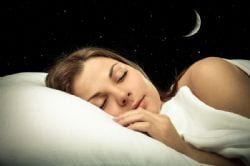Sleep scientists’ latest book debunks 40 myths on getting a good night’s sleep
13 July 2017
A new book by leading sleep scientists debunks 40 popular and persistent myths on how to get a good night’s sleep – from the efficacy of bed socks to the potentially negative consequences of sticking to ‘the eight hour rule’. ‘Sleep Better: The science and the myths’ by Professor Graham Law and Dr Shane Pascoe […]

 A new book by leading sleep scientists debunks 40 popular and persistent myths on how to get a good night’s sleep – from the efficacy of bed socks to the potentially negative consequences of sticking to ‘the eight hour rule’.
A new book by leading sleep scientists debunks 40 popular and persistent myths on how to get a good night’s sleep – from the efficacy of bed socks to the potentially negative consequences of sticking to ‘the eight hour rule’.
‘Sleep Better: The science and the myths’ by Professor Graham Law and Dr Shane Pascoe examines in detail 40 common misconceptions about sleep, including misplaced tenets of perceived wisdom such as “The older I get, the more sleep I need”, “You lose weight by sleeping” and “Cheese gives you nightmares”.
Professor Graham Law is a sleep scientist with more than 25 years’ research experience. Based in the School of Health & Social Care at the University of Lincoln, UK, he is an Honorary Secretary of the British Sleep Society and specialist in health and epidemiology. Dr Shane Pascoe is a psychologist at the University of New South Wales, Australia, with 20 years’ experience helping people with a variety of sleep disorders.
Professor Law said: “It’s widely recognised that it takes 10,000 hours of practice to become an expert at something. We clock up 10,000 hours of sleep by the age of three and yet most of us are not experts at sleeping! There is a lot of mythology around getting a good night’s sleep, much of it well-intentioned, yet some of the most persistent myths are not only flawed, they could actually be harmful to our health and well-being.
“I’ve been working in the field of sleep research for a number of years and have heard hundreds of stories and examples from students and research participants about their sleep habits and attitudes. I started to write down some of the myths and by the time I got to 15 or 20 different myths I realised I needed to do something about it. There are 40 myths in the book but there were many, many more we left out.”
The book explains how sleep is governed by two processes: each person has their own ‘sleep debt’ and circadian rhythms. In healthy people these two processes should work in tandem but they can also run out of synch, and these imbalances are often the cause of sleep disorders. Common problems include insomnia, sleep apnoea or excessive snoring.
Professor Law explained: “We can do very little to change our circadian rhythms, however, our sleep debt is very much influenced by our behaviour: when we go to bed, what we eat, how much we exercise, when we work and when we have fun. Many of these factors are things we can change. Just thinking a little more about how our behaviour affects our sleep can have a huge impact on health and well-being.”
The book outlines the scientific evidence relevant to each myth: revealing the kernels of truth behind some axioms, and the potential risks of the more spurious untruths. Each chapter closes with ‘top tips’ for readers to address underlying issues behind common sleep problems, for instance, the value of maintaining a sleep diary to understand individual sleep needs rather than aiming rigidly for a “staple” eight hours in bed each night. Practical advice is based on principles of CBTI (Cognitive Behavioural Therapy for Insomnia), which aims to address the causes of sleep problems by adjusting individual attitudes and behaviours rather than through medication. Besides providing evidence for healthy bedtime habits, another topic tackled in the book is the UK’s largely negative attitude towards daytime – and workplace – napping.
“There are very clear biological reasons why taking a nap after lunch is beneficial,” said Professor Law. “We have a natural circadian dip after eating. Many people in Mediterranean countries take a nap in the afternoon and if we allowed ourselves to do the same more in the UK, rather than struggling through, it’s likely we would not see such big drops productivity due to tiredness mid-afternoon. Many forward-thinking companies are already responding to the science about napping by introducing nap pods for employees, Google being one of the first.”
‘Sleep Better: The science and the myths’ is available in paperback and ebook by Sheldon Press.
